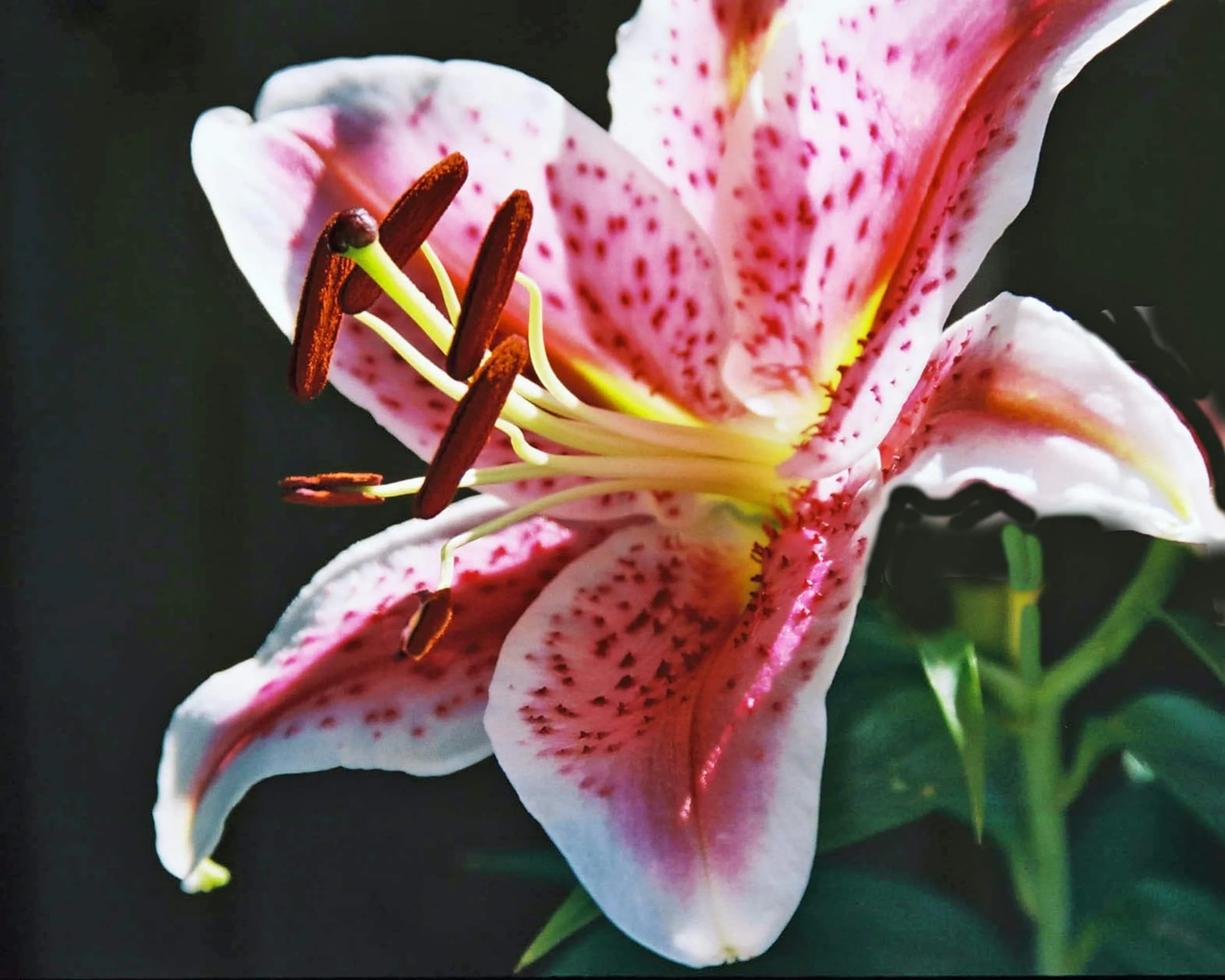Poisonous Houseplants & Dangers In Your Garden
Beautiful but deadly: lilies are the most toxic plants to cats
Common garden plants
You would think that your back garden is a natural and secure place for your cats to enjoy, but unfortunately this is not always so. The most obvious dangers in the garden are poisonous plants but because the cat's metabolism is different from humans, plants that are poisonous to people are not always poisonous to cats and vice versa.
Some of the garden plants poisonous to cats are: Ivies (Hedera spp), Cherry Laurel (Prunus Laurocerasus), Mistletoe, Rhododendron,Azaleas, Euphorbias, Oleander.
This list is not exhaustive, but one must also apply a sense of proportion. Even if you uproot all possible harmful plants in your garden a cat could still wander into a neighbour's garden and find them growing there. Some plants smell and taste repulsive to cats and most cats retain many of their wild instincts, therefore they know which plants are edible. However, when a cat leads a more enclosed life and does not have the choice of plants to eat it is less likely to differentiate between good and bad ones.
Therefore caution should be taken in cat runs and gardens that are fenced in. Extra care should be taken with kittens who, like all small creatures, are inquisitive and playfully have a nibble at anything. Also, because of their smaller body weight they are more susceptible to poisons.
Houseplants and flowers
Similarly care should be taken inside the house especially with kittens and housebound cats.
Flower arrangements can pose a life-threatening risk: the lily is among the most dangerous plants to cats. Even a small amount of lily pollen brushed or fallen on the fur and licked off, or drinking the vase water can cause immediate kidney failure leading to fatality. Cat owners should never keep a lily plant indoors or buy flower bouquets that contain lilies (such as Easter lilies, Tiger lilies or other members of the true lily family) , but if you insist on having them, then at least remove the pollen stamens and keep the flowers in a room or location where a cat cannot access it.
Dieffenbachia (also known as the Dumb Cane plant, commonly speckled with white) is an extremely poisonous house plant, causing painful ulcerations in the mouth, oesophagus and stomach within minutes.
The most popular indoor plants that are poisonous to cats are: Poinsettias, Lilies, Oleanders, Philodendron, Solanum Capiscastrum (false Jerusalem Cherry), Elephant Ears (Caladium spp), and Parlour Palms.
It is best to keep all houseplants out of reach of your cats or in a room they do not have access to, until you are sure they will not be tempted. Try to keep a pot of "cat grass" available for cats that cannot go outside; you can buy kits and seeds in pet shops.
Other outdoor hazards
Garden chemicals
Another danger to animals in the garden are garden chemicals; slug pellets and creosote are particularly harmful to cats and all wildlife. Always read instructions on packets and try to use chemicals that state they are non-toxic to pets, or better still garden organically!
Bonfires
People have been told to check bonfires for hibernating hedgehogs, but it is not unknown for our workers to find feral kittens inside bonfires too. So make sure you check that no animal has set up home by lifting the whole pile off the ground immediately before lighting that match.
Ponds & pools
Ponds (and, if you are lucky swimming pools) with sheer sides can be dangerous to cats and other animals as once that are in they cannot climb back out. This can be overcome by placing a plank of wood at the edge so an animal can use it as a ramp. An artificial island made from big stones in the middle of the water would also enable the cat to jump out. Another idea is to submerge a large planted pot, filled with gravel near to the edge of the pond, as recommended by the late Geoff Hamilton, the TV gardener.
Water Butts
Cats cat easily drown in water butts. Cover the top with a secure lid or a sturdy fixed mesh panel. Check regularly that any cover has not been dislodged by the wind or inquisitive felines!
Seek vet care
It goes without saying that if one of your animals shows signs of poisoning take them to a vet immediately. If you know the possible cause take the chemical packaging or some of the plant with you. Try to make your garden a safe haven for all its four legged and two winged inhabitants and visitors.
For more detailed lists of dangerous plants see: Poisonous plants and your cat
© Annette Freeman

